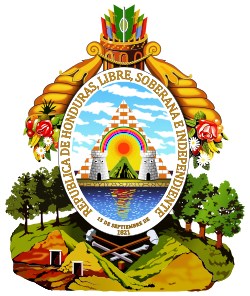| |||||||||||||||||
Presidential election | |||||||||||||||||
| Turnout | 72.70% ( | ||||||||||||||||
|---|---|---|---|---|---|---|---|---|---|---|---|---|---|---|---|---|---|
| |||||||||||||||||
 Flores: 40-50% 50-60% Gúnera: 40–50% 50–60% | |||||||||||||||||
| |||||||||||||||||
 |
|---|
General elections were held in Honduras to elect a president and parliament on 30 November 1997. They were also the first elections in which the left wing Democratic Unification Party was allowed to stand. Closed list PR was used to elect Congress.
Contents
Carlos Roberto Flores of the Liberal Party was elected president, defeating Nora Gúnera de Melgar who was the first woman to stand for the Presidency. [1] Major campaign issues were crime and rising living standards. [2]


